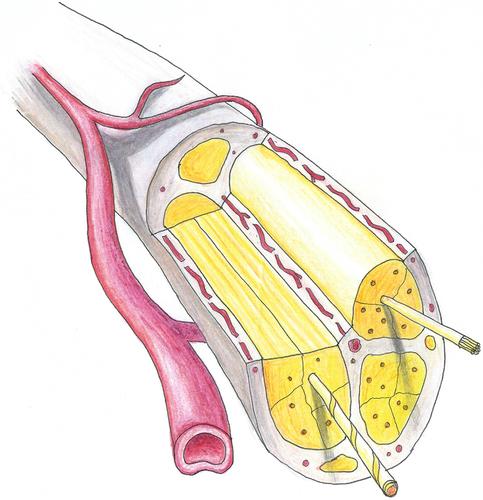Diabetic polyneuropathy (DPN) is a debilitating condition and associated with significant morbidity, including gait disturbances, reduced quality of life, and pain, that is often resistant to conventional treatments. Treatment of DPN is based on several major approaches, including risk factor management, intensive glycemic control, and symptomatic pain management. Although some authors argue that none of the existing treatment options are satisfactory, an alternative strategy is frequently overlooked: the use of a whole-food, plant-based diet. The aim of this review was to systematically investigate whether a whole-food, plant-based diet could beneficially affect patients suffering from type 2 diabetes and DPN.
The electronic databases of PubMed and Google Scholar were searched using the keywords “plant-based,” “vegetarian,” “vegan,” “diet,” and “diabetic neuropathy.”
Only a handful of studies investigated the effects of a plant-based diet on diabetic neuropathy. These studies suggest that a plant-based diet may alleviate pain in affected patients while significantly improving glycemic control, overweight, and serum lipids at the same time. Moreover, a plant-based diet appears to reduce the medication burden in affected patients. However, the results must be interpreted with caution, because the number of clinical trials is limited and all studies have important limitations with regard to their methodology. The dietary intervention was often combined with exercise and other supplemental factors, complicating the interpretation of results. Several potential mechanisms of action including improved blood flow and optimized intake of important nutrients were identified. These factors might complementarily contribute to improved perfusion in the endoneurial microvasculature, thus reducing local hypoxia and improving pain.
Physicians should consider recommending a plant-based diet to patients suffering from DPN, as current studies show favorable effects in terms of pain management, glycemic control, and reduced medication needs. Further well-designed studies are required to confirm the results of this review.


